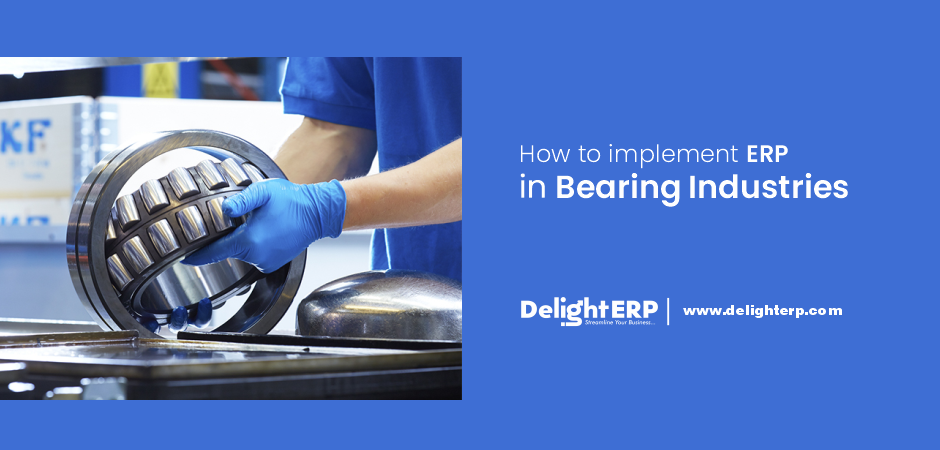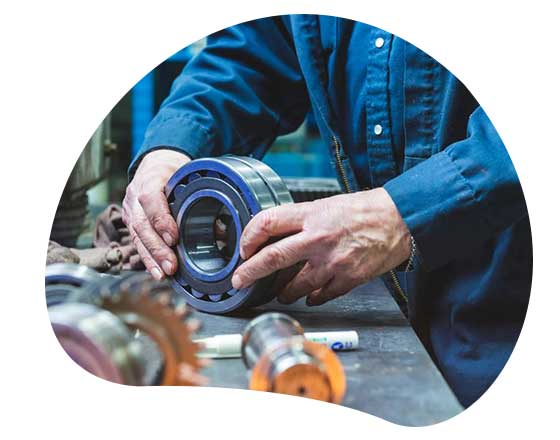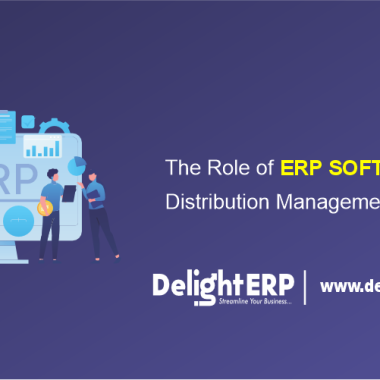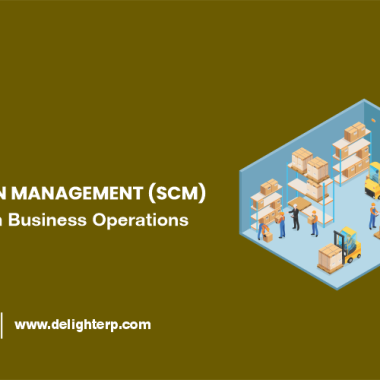Introduction
Enterprise Resource Planning (ERP) systems have revolutionized the way businesses operate and manage their resources. They offer a comprehensive suite of integrated software applications that enable organizations to automate and streamline their core business processes. For bearing industries, which manufacture precision products such as ball bearings, roller bearings, and other related components, implementing an ERP system can have a significant impact on their operations.
Bearing industries face unique challenges, such as managing complex supply chain processes, tracking inventory, and ensuring quality control. These challenges can be addressed by implementing an ERP system, which can help to optimize the production process, reduce inventory costs, and improve overall operational efficiency. In addition, ERP systems can provide real-time insights into critical business data, enabling decision-makers to make informed decisions and stay ahead of the competition.
In this blog post, we will explore the benefits of implementing an ERP system in bearing industries. We will delve into the specific challenges that these industries face, and how an ERP system can address them. Whether you are in a small or large bearing industry, the implementation of an ERP system can help you achieve greater efficiency, reduce costs, and gain a competitive advantage in the market.
Steps to Implement ERP in bearing Industries:
Step 1: Define Business Processes and Requirements
The first step in implementing an ERP system is to define your business processes and requirements. This includes identifying the key functional areas in your organization that need to be automated, such as inventory management, production planning, sales, and finance. It is essential to involve all stakeholders in this process, including management, department heads, and end-users, to ensure that all requirements are captured.
Step 2: Choose the Right ERP Solution
Once you have defined your business processes and requirements, the next step is to choose the right ERP solution. There are many ERP systems available in the market, each with its unique features and functionalities. It is important to evaluate the ERP solutions based on your business needs, scalability, and cost.
Step 3: Plan and Prepare for Implementation
Before implementing the ERP system, it is essential to plan and prepare for the implementation process. This includes creating a project plan, setting a budget, defining the roles and responsibilities of each team member, and identifying any potential risks or challenges.
Step 4: Data Migration and System Configuration
Once the ERP system has been selected, the next step is to migrate the existing data to the new system and configure the system to meet the business requirements. This process involves mapping the data from the legacy systems to the new ERP system, testing the data, and verifying the accuracy of the data.
Step 5: Training and User Acceptance
One of the critical factors in the successful implementation of ERP is user acceptance. It is essential to provide comprehensive training to end users to ensure that they understand the new system and its functionalities. This will also help to build user confidence and ensure that the system is being used effectively.
Step 6: Go Live and Support
The final step in implementing an ERP system is to go live and provide ongoing support. This involves deploying the system to the production environment and monitoring the system’s performance. It is essential to have a support team in place to handle any issues that may arise and provide training and guidance to end users.
Top Bearing Manufacturing industries in India:
-
-
Turbo Bearings Private Limited
-
ORBIT BEARINGS (INDIA) PRIVATE LIMITED
-
Austin Engineering Company Limited
-
SKF India Limited
-
Timken India Limited
-
NTN Bearing India Private Limited
-
Schaeffler India Limited
-
National Engineering Industries Limited (NBC Bearings)
-
NRB Bearings Limited
-
TATA Bearings Limited
-
Also check this: “Types Of Manufacturing Industries Surrounding Rajkot / Saurashtra Region.”
Benefits of Implementing ERP in Bearing Industries
Implementing an ERP system in bearing industries can bring many benefits, including:
1) Improved Inventory Management:
ERP systems can help bearing industries manage their inventory levels more efficiently and reduce inventory-carrying costs.
2) Streamlined Production Planning:
ERP systems can help to streamline the production planning process, reduce lead times, and improve delivery times.
3) Streamlining Operations:
ERP systems can help bearing industries automate and streamline their business processes, from supply chain management to sales and marketing. This automation can reduce manual errors and increase efficiency, resulting in cost savings and improved productivity.
4) Improved Visibility:
ERP systems can provide real-time visibility into key business processes, enabling decision-makers to make informed decisions. This can help bearing industries identify issues or bottlenecks in their operations and address them quickly.
5) Enhanced Collaboration:
ERP systems can promote collaboration and communication among different departments and teams within bearing industries. This can lead to improved coordination and a better understanding of business processes and goals.
6) Better Data Management:
ERP systems can centralize data management, ensuring that information is accurate and up-to-date. This can reduce the risk of errors and inconsistencies in data and improve decision-making.
7) Enhanced Customer Service:
ERP systems can help bearing industries improve customer service by providing a single view of customer data across all departments. This can help businesses respond to customer needs quickly and efficiently, improving customer satisfaction and loyalty.
8) Improved Financial Management:
ERP systems can help bearing industries manage their finances more efficiently by automating financial processes such as billing and invoicing. This can reduce the risk of errors and delays in financial reporting, improving the accuracy and timeliness of financial information.
Overall, implementing an ERP system can help bearing industries improve their operations, reduce costs, and increase efficiency, leading to improved profitability and competitive advantage.
Conclusion
Implementing an ERP system in bearing industries can be a complex and challenging process, but the benefits it can bring in terms of efficiency, productivity, and profitability make it well worth the effort. By following the steps outlined in this blog, bearing industries can successfully implement an ERP system and enjoy the many benefits it can bring.
Delight ERP is one of the best ERP software company in Rajkot, Gujarat which provides the best features of ERP software with the latest technology.
Our best ERP system is a cost-effective solution to help you to establish a fully integrated & smart business. Our highly advanced cloud ERP software contains various modules that focus on essential business areas.





